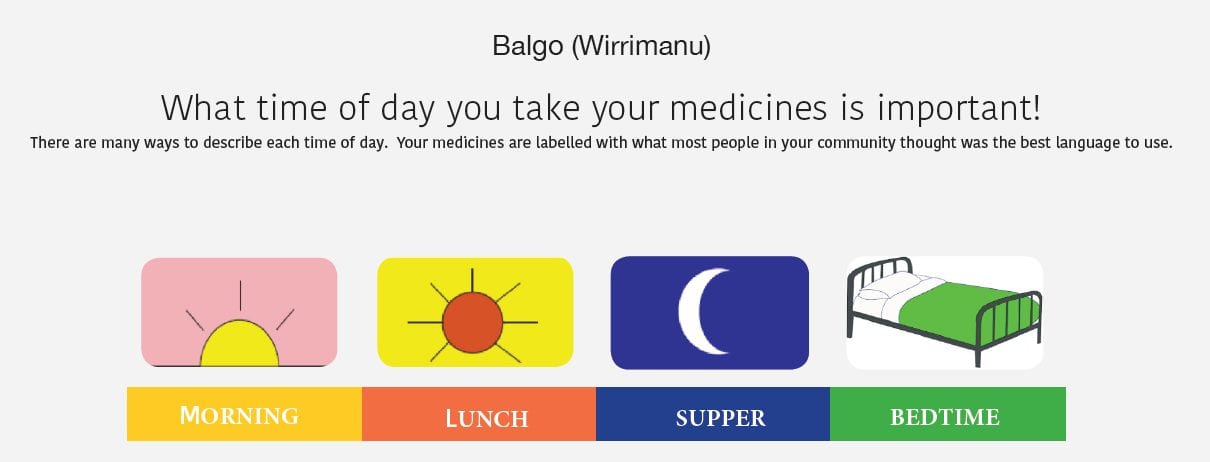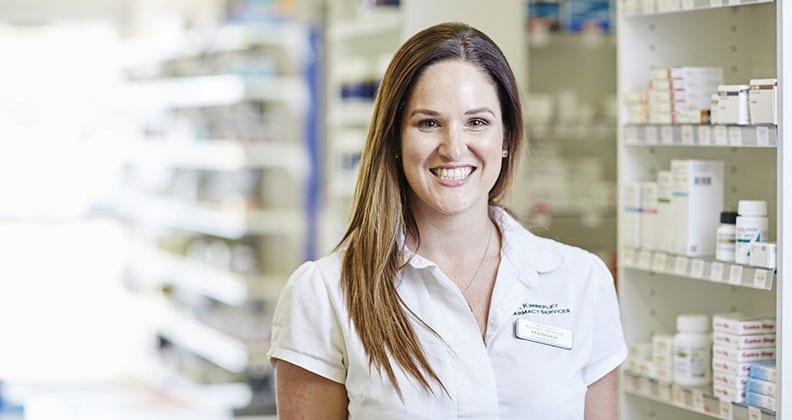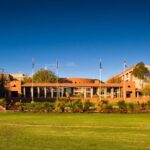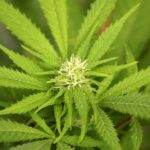Thousands of kilometres north of Perth, in the Kimberley region, a lone car is making its way along a red dirt road to one of Western Australia’s most remote communities.
The driver is pharmacist and Curtin alumna Hannah Mann, and she is heading to Balgo, population 359.
Mann is the owner and founder of Kimberley Pharmacy Services (KPS), an award-winning community-centred pharmacy, focused on remote Indigenous health.
With three branches, in Broome, Derby and Fitzroy Crossing, Mann spends much of her time on the road, travelling between the pharmacies and providing medication advice and assistance to dozens more communities.
“Living in a non-remote area, we take it for granted that we can walk into a pharmacy whenever we want if we’re worried about our tablets,” she explains. “But here, there are enormous access barriers and many people don’t even understand what a pharmacist is, or does.”
Diabetes and renal disease are two of the chronic conditions faced by her patients.
“I have a lot of dialysis and pre-dialysis patients which is really concerning,” she says.
“For patients to start dialysis, they have to go to Perth, and then wait for a ‘chair’ to become available in the Kimberley. This means they have to wait for somebody to move, or sadly pass, before they can go home.
“Imagine if you had to leave your family, move somewhere culturally foreign, had no accommodation and no idea when you could go home.
“That is a huge decision for people to make, particularly older people who have such important roles in community. Choosing to leave is so tough and many patients don’t – with terrible consequences.”
In her role as pharmacist, Mann spends significant time one-on-one with patients, focusing on early intervention.
“It can be difficult for patients to understand the importance of taking their medication when they feel well. They can’t see that they have bad kidneys or high blood pressure. That’s where our pharmacy plays such an important role in explaining the benefit of taking preventative medication to our patients.”
Mann firmly believes in the importance of consulting with the community and providing what her patients really need.
“Since the business started, our goal has been to do remote pharmacy differently,” she says.
“We collaborate with the community to work to find their actual needs and we acknowledge what those needs are and look after those specific requirements rather than trying to mould it into something else.”
She and her team recently changed the labels on their medications, after realising patients were confused.
“For the longest time in pharmacy, we used sunrise and sunset symbols to indicate if medication should be taken in the morning or at night,” she says.
“But what was horrendously obvious once it was pointed out to me by a patient, is that both symbols look fundamentally the same! And using a picture of the moon to indicate bedtime doesn’t work either.
“If you live out bush and you live by the sunrise and sunset, the moon rising might not actually be at bedtime. It could be at 5pm. So we’ve introduced a sunrise image for morning time, a bright sun in the sky for midday, and a bed for bedtime. It was an easy change and we’ve had really positive feedback.”

Award-winning care
The community-focused approach of KPS has attracted national recognition. In 2015, the Broome branch was named Pharmacy of the Year by The Pharmacy Guild of Australia, the industry’s most prestigious honour. Mann was also named First Amongst Equals in the Business News 40under40 awards earlier this year for her extraordinary contribution to remote Indigenous health.
But the ambitious pharmacist has no plans to slow down.
“My long-term vision for KPS is to build even stronger relationships with Aboriginal health practitioners,” she says.
“I want to create a workforce of local experts in Aboriginal communities to be the medication specialists when we’re not there.”
Mann says she was inspired to study pharmacy at Curtin after witnessing the positive influence of a friend’s pharmacy in suburban Perth.
“I always wanted a career helping people. Seeing the impact his pharmacy had was a pivotal moment for me,” she says.
She found the practical components of her pharmacy degree rewarding and initially pictured a career working as a clinical pharmacist in a metropolitan hospital.
But it was her final student placement in Broome that would reset her career trajectory.
“If I hadn’t gone to Broome in my fourth year, I would not have ended up working in Aboriginal health,” she says emphatically.
“I worked with an organisation called KAMS (Kimberley Aboriginal Medical Service) and visited the Aboriginal Health Service in Derby. Within two weeks I knew I wanted to relocate to Broome. I couldn’t imagine working anywhere else now.”
Mann has been based in Broome for thirteen years now and has forged strong links with the local community.
“It took a bit of getting used to, but now I really enjoy the small town environment,” she smiles.
“I like that people stop me outside of work hours to talk about their health. It was strange at first to be ‘available’ all the time, even when I was in the supermarket doing my grocery shopping, but now I love it.
“I think a really important part of being a pharmacist, regardless of whether you’re in your pharmacy or not, is being accessible to your community.”
***
Back in Balgo, Mann pulls up to the local health clinic. She has been here before and hopes people will remember she is coming.
A young man bursts into the clinic. He wants to know where “the medicines lady” is. He’s worried and has questions about his tablets. Mann can’t wipe the smile off her face.
“This is why I do what I do,” she beams.



